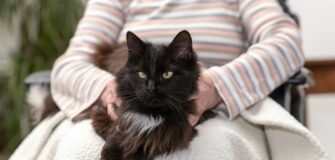Elderly Hydration 101: How to keep your elderly hydrated and healthy
Share
Our bodies become more prone to dehydration due to physiology and a decreased sense of thirst as we age, making adequate hydration a crucial aspect of aged care.
The National Ageing Research Institute (NARI) noted that this can be particularly problematic for older adults, who may be more susceptible to dehydration due to factors such as reduced kidney function, certain medical conditions and medications. Ensure that your elderly stay hydrated and maintain their overall health and well-being by following these tips:
- Encourage them to drink fluids regularly
- Offer fluids at regular intervals
- Pay attention to signs of dehydration
- Consider using a straw
- Consider their medications
Encourage them to drink fluids regularly
Elderly individuals must drink fluids throughout the day, not just when thirst strikes.
The Department of Health noted that while water may be the best choice for hydration, other fluids such as broths, soups, fruit juice, and sports drinks can also help keep them hydrated.
Offering a variety of fluids can help ensure they are getting the right amount and balance of nutrients.
Offer fluids at regular intervals
NARI recommends setting a schedule to offer fluids to your elderly loved ones, such as every hour or two, to ensure that they are getting enough fluid throughout the day.
In addition to offering fluids at regular intervals, encourage them to drink fluids in between meals as well.
Pro tip: Consider using a daily fluid tracker. You can use a simple chart or app to track their intake and make adjustments as needed.
Pay attention to signs of dehydration
Symptoms of dehydration include thirst, dry mouth and throat, dark yellow urine and feeling dizzy or lightheaded. If your elderly loved one is experiencing any of these symptoms, DOH said to encourage them to drink more fluids and seek medical attention if necessary.
Consider using a straw
Using a straw can make it easier for elderly individuals who have difficulty swallowing to drink fluids. The Royal District Nursing Service (RDNS) also mentioned that fluids at room temperature may be easier to swallow than cold fluids.
Consider their medications
Some medications can increase the risk of dehydration, so it is important to discuss this with a healthcare provider and adjust their fluid intake accordingly. Here are some of the medications to look out for:
- Diuretics: medications used to treat high blood pressure, heart failure and kidney disease. They increase fluid loss by promoting the production of urine.
- Laxatives: medications used to treat constipation. They increase fluid loss by promoting bowel movements.
- Antidepressants: some medications used to treat depression can cause decreased fluid intake, resulting in dehydration.
- Pain medications: some pain medications, such as non-steroidal anti-inflammatory drugs (NSAIDs) can lead to dehydration.
It is important to consult with a healthcare provider to determine the appropriate fluid intake for their needs. They may have specific recommendations based on age, medical conditions, and medications.
Keeping your elderly loved ones hydrated is an important aspect of maintaining their health and well-being. By encouraging them to drink fluids regularly, paying attention to signs and considering their medications, you can help ensure that they stay hydrated and healthy and avoid the negative effects of dehydration.
Ritchelle is a Content Producer for Healthcare Channel, Australia’s premier resource of information for healthcare.












